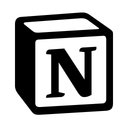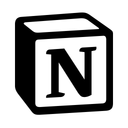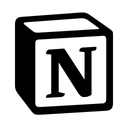Notion vs Any.do (2026 Comparison)

Notion offers a versatile platform for organizing tasks, projects, and notes. Its advanced collaboration tools and customizable workflows make it ideal for teams and individuals seeking a comprehensive productivity solution.
- Highly customizable workflows
- Advanced collaboration tools
- Wide range of templates
- Steep learning curve
- Interface can feel cluttered
Free plan?
YesStarting price
$10 per month per userAny.do provides an intuitive task management experience with excellent reminders and cross-platform availability. It's perfect for users who need a simple, effective tool to stay organized and on top of their tasks.
- Intuitive task management
- Excellent reminder system
- Cross-platform availability
- Limited customization options
- Basic collaboration features
Free plan?
YesStarting price
$4.99 per monthWhat is Notion?
Notion is a versatile productivity tool that combines note-taking, task management, and collaboration features into one platform. It helps users organize their work and personal life by providing customizable templates, databases, and a flexible workspace. Whether you're managing a project, planning a trip, or simply jotting down ideas, Notion offers a seamless experience that adapts to your needs. Its ability to integrate with other tools and its user-friendly interface make it a favorite among individuals and teams looking to streamline their workflows.
What is Any.do?
Any.do is a task management and productivity app designed to help users organize their daily tasks and schedules efficiently. With features like to-do lists, reminders, and calendar integration, Any.do ensures that you never miss a deadline or appointment. Its intuitive interface and cross-platform availability make it easy to manage tasks on the go, whether you're at home, in the office, or traveling. Any.do's focus on simplicity and functionality makes it an ideal choice for individuals seeking to enhance their productivity and stay on top of their commitments.
Pros and Cons of Notion vs Any.do

Pros & Cons of Notion
- Notion allows you to create workflows that are tailored to your specific needs, whether for personal projects or team collaboration. This flexibility is a major advantage for users who want a tool that adapts to their unique requirements.
- With Notion, teams can collaborate seamlessly on projects, share notes, and track progress in real-time. This makes it an excellent choice for businesses and teams looking to enhance their productivity and communication.
- Notion offers a diverse selection of templates for various use cases, helping users get started quickly and efficiently. These templates are a great resource for those who want to streamline their workflow.
- Notion's extensive features and customization options can be overwhelming for new users. It may take some time to fully understand and utilize all the capabilities, which could be a drawback for those seeking a quick setup.
- With so many features and options, Notion's interface can sometimes feel cluttered, especially for users who prefer a more minimalist design. This might be a consideration for those who value simplicity.
Pros & Cons of Any.do
- Any.do excels in providing a simple and intuitive task management experience. Its user-friendly interface makes it easy to create and manage tasks, making it a great choice for those who prioritize simplicity.
- The reminder system in Any.do is highly effective, ensuring that users never miss important tasks or appointments. This feature is particularly useful for individuals who rely on timely notifications to stay organized.
- Any.do is available across multiple platforms, allowing users to access their tasks and schedules from any device. This cross-platform compatibility is a significant advantage for those who need flexibility in managing their tasks.
- While Any.do is easy to use, it lacks the extensive customization options found in other tools. This could be a limitation for users who want to tailor their task management experience to specific needs.
- Any.do offers basic collaboration features, which may not be sufficient for larger teams or complex projects. Users seeking advanced collaboration tools might find this aspect lacking.
Notion vs Any.do: At A Glance
Value to Price
Notion offers a comprehensive suite of features at a competitive price, making it a great value for users who need a versatile tool. Its ability to replace multiple apps with one platform can save costs in the long run. Any.do, while slightly less feature-rich, provides excellent value for those primarily focused on task management. If you're looking for a tool that offers more bang for your buck, Notion might be the better choice.
Ease of Use
Any.do shines in its simplicity and ease of use, making it accessible for users of all skill levels. Its intuitive design allows for quick task creation and management. Notion, while powerful, can have a steeper learning curve due to its extensive customization options. If you prioritize ease of use, Any.do is likely the better option.
Functionality
Notion excels in functionality, offering a wide range of features that cater to various needs, from project management to personal organization. Its flexibility allows users to create custom workflows and databases. Any.do, while functional for task management, doesn't offer the same level of versatility. If you need a tool with robust functionality, Notion is the superior choice.
Scalability
Both Notion and Any.do offer scalability, but Notion's ability to handle complex projects and large teams gives it an edge. Its customizable templates and databases can grow with your needs. Any.do is suitable for individual users and small teams but may not scale as effectively for larger organizations. If scalability is a priority, Notion is the better option.
Integrations
Notion offers a wide range of integrations with popular tools, enhancing its functionality and allowing seamless workflow management. Any.do also provides integrations, but its selection is more limited. If you rely on multiple tools and need a platform that integrates well, Notion is the better choice.
Customer Support
Any.do provides responsive customer support, ensuring users can quickly resolve any issues. Notion also offers support, but its extensive documentation and community resources are its main strengths. If you prefer direct support, Any.do might be the better option.
Security
Both Notion and Any.do prioritize security, offering features like data encryption and secure access controls. Notion's enterprise-grade security features make it suitable for businesses with stringent security requirements. If security is a top concern, Notion is the more robust choice.
Overall Rating
Notion's comprehensive features and flexibility make it a top choice for users seeking an all-in-one productivity tool. Any.do, with its focus on simplicity and task management, is ideal for users who need a straightforward solution. If you're looking for a versatile tool, Notion is the better option.
Notion vs Any.do: A Detailed Breakdown of Key Features
Task Management
When it comes to task management, Any.do takes the lead with its intuitive interface and seamless task creation process. I found it incredibly easy to set up tasks and reminders, which is perfect for those who need a straightforward solution. Notion, on the other hand, offers more advanced task management features, allowing for detailed project tracking and task dependencies. If you need a simple task manager, Any.do is your go-to, but for more complex task management, Notion is the better choice.
Collaboration
Notion excels in collaboration, providing a platform where teams can work together on projects, share notes, and track progress in real-time. Its collaborative features are robust, making it ideal for team environments. Any.do offers basic collaboration features, suitable for small teams or personal use. If you're working in a team and need advanced collaboration tools, Notion is the superior option.
Customization
Notion's customization capabilities are unmatched, allowing users to create personalized workflows, databases, and templates. I love how I can tailor Notion to fit my specific needs, whether it's for work or personal projects. Any.do offers limited customization, focusing more on simplicity. If you value customization and want a tool that adapts to your workflow, Notion is the clear winner.
Reminders
Any.do's reminder feature is top-notch, ensuring you never miss a task or appointment. I appreciate how easy it is to set up reminders and receive notifications across devices. Notion also offers reminders, but they are more integrated into its broader task management system. If reminders are a priority, Any.do is the better choice.
Templates
Notion provides a wide array of templates for various use cases, from project management to personal organization. I find these templates incredibly helpful in getting started quickly. Any.do offers fewer templates, focusing more on task management. If you need a tool with diverse templates, Notion is the better option.
Cross-Platform Sync
Both Notion and Any.do offer cross-platform sync, allowing you to access your tasks and notes from any device. I found both tools reliable in keeping my data up-to-date across platforms. However, Notion's sync is slightly more seamless, especially when dealing with complex projects. If cross-platform sync is crucial, Notion has a slight edge.
Pricing Comparison of Notion and Any.do
We’ve compiled the pricing tables and highlighted the key features of both Notion and Any.do to aid in your decision-making process. Let’s explore what each platform has to offer.

Notion Pricing Plans
- Collaborate with friends, family & colleagues on your pages.
- Basic page analytics to track interactions.
- Restore your page to a previous version with 7-day history.
- Invite up to 10 guests to collaborate.
- Unlimited file uploads for seamless data management.
- 30-day page history for better version control.
- Invite up to 100 guests for broader collaboration.
- Custom websites with Google Analytics integration.
- Private teamspaces for sensitive information.
- Bulk PDF export for legal or compliance backups.
- Advanced page analytics for detailed insights.
- Invite up to 250 guests for extensive collaboration.
- Advanced security & controls for enhanced protection.
- Audit log for tracking security-related activities.
- Customer success manager for expert guidance.
- Unlimited page history for comprehensive version tracking.
Any.do Pricing Plans
- Access tasks and lists across multiple devices effortlessly.
- Set reminders to stay on top of important tasks.
- Utilize a calendar to manage your schedule effectively.
- Daily planner to prioritize tasks and manage time efficiently.
- Receive reminders via WhatsApp for better task management.
- Leverage AI-powered features for enhanced productivity.
- Use color tags to categorize and prioritize tasks.
- Set location-based reminders for timely task execution.
- Manage household tasks with up to 4 family members.
- Create and share grocery lists for efficient shopping.
- Collaborate on shared projects with family members.
- Access all Premium features for enhanced family management.
- Unlimited project boards for diverse project handling.
- Invite unlimited team members for seamless collaboration.
- Access over 100 workflow templates for efficient task management.
- Admin tools and permissions for controlled access.
Our Rating Methodology
We thoroughly evaluate each productivity tool, focusing on key aspects like functionality, ease of use, and integrations. By analyzing user feedback and conducting hands-on testing, we ensure our recommendations align with user needs. Each factor is weighted to provide a balanced final score, helping you choose the right tool for your productivity goals.
Notion or Any.do: Which One Matches Your Business Needs?
Choose Notion If You Need ...
- Highly customizable workflows
If you need a tool that offers highly customizable workflows, Notion is the ideal choice. Its flexibility allows you to create personalized workflows that fit your specific needs, whether for personal projects or team collaboration.
- Advanced collaboration tools
If you work in a team and require advanced collaboration tools, Notion is the better option. Its robust features enable seamless collaboration, making it perfect for businesses and teams looking to enhance productivity.
Choose Any.do If You Need ...
- Intuitive task management
If you prioritize intuitive task management, Any.do is the right choice. Its user-friendly interface makes it easy to create and manage tasks, ensuring you stay organized without any hassle.
- Excellent reminder system
If you rely on reminders to stay on top of your tasks, Any.do is the superior option. Its excellent reminder system ensures you never miss important tasks or appointments, keeping you on track.
Frequently Asked Questions
 Which tool is better for team collaboration?
Which tool is better for team collaboration?
 Is Any.do suitable for complex project management?
Is Any.do suitable for complex project management?
 Can I customize workflows in Any.do?
Can I customize workflows in Any.do?
 Which tool offers better integration options?
Which tool offers better integration options?
 How does the security of Notion compare to Any.do?
How does the security of Notion compare to Any.do?
 Which tool is more cost-effective?
Which tool is more cost-effective?

Martin Lunendonk
Martin Lunendonk is a senior tech writer specializing in website builders, web hosting, and ecommerce platforms. With a background in finance, accounting, and philosophy, he has founded multiple tech startups and worked in medium to large tech companies and investment banking, bringing deep expertise and reliable insights to his software reviews.


